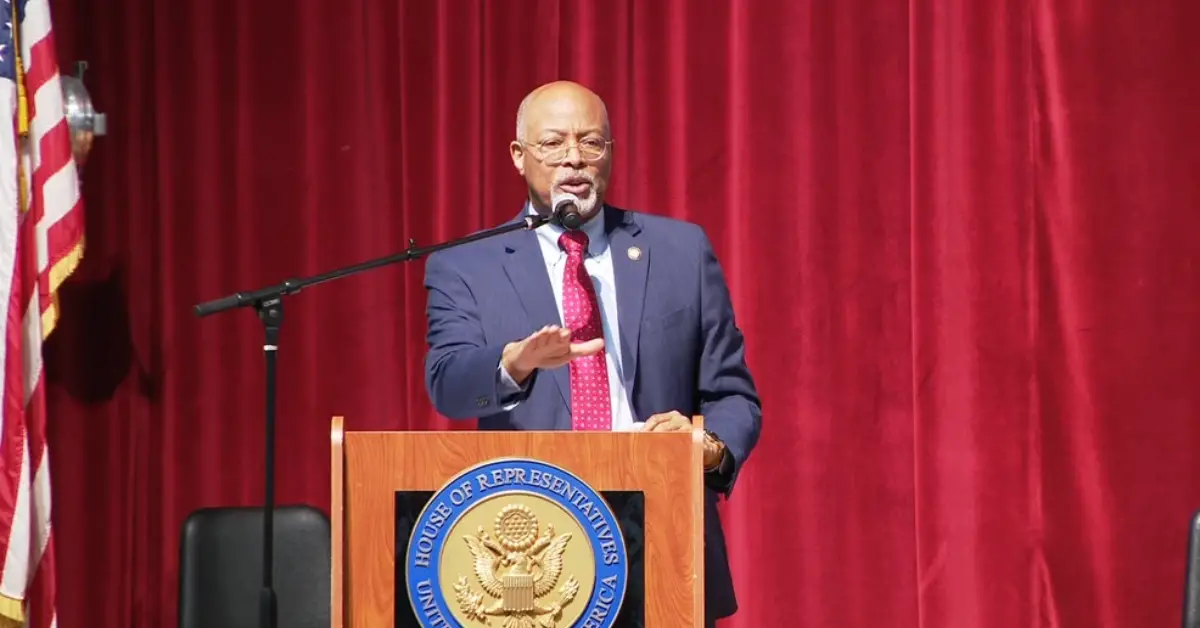The Social Security Administration (SSA) are already taking a toll on people across the United States, including in Maryland, with growing concerns that the situation will worsen. Congressman Glenn Ivey recently held a press conference to highlight the severe consequences of these cuts, especially for those who rely on Social Security benefits to meet their daily needs.
The press conference, held on Wednesday in front of the Seabrook Social Security Office, served as a platform for Ivey to raise his concerns about the impact these budget cuts are having on the Social Security Administration’s ability to serve the public effectively. With a focus on how reductions in staff and resources are affecting people’s access to critical services, Ivey emphasised the importance of restoring adequate funding to ensure that citizens continue to receive the support they depend on.
“Offices like this one, with cuts to staff, are struggling to do the job properly,” Ivey said. “People deserve better. They’ve worked for these benefits, and they need to be able to access them without unnecessary delays or barriers.”
According to Ivey, the cuts are making it increasingly difficult for Social Security employees to keep up with the demand for services. As a result, long wait times, poor communication, and delays in processing claims have become all too common. In some cases, individuals have even been forced to wait months before receiving any assistance.
At the heart of Ivey’s concerns is the impact on some of the most vulnerable citizens in his district—those who rely on Social Security benefits for their daily survival. For many, Social Security is their primary source of income, and without it, they face serious financial instability. The cuts, Ivey argues, threaten the livelihoods of these individuals, leaving them in limbo as they wait for assistance that may never arrive.
Among the individuals who attended the press conference was Deborah Williams, a Maryland resident who relies on Social Security benefits to support herself. Williams shared her personal experience with the cuts and how they have affected her life.
She told reporters that her struggles began when she was employed on a probationary basis and had just completed one month of service before she was unexpectedly terminated. After being reinstated, she was once again terminated, leaving her without a stable job and income.
“I need this for rent,” Williams explained. “I’m still struggling to find a stable place to live. I have other bills to pay too, and Social Security is a very vital source of support for me. It’s crucial to get this back in action as soon as possible.”
Williams’ story highlights the desperate need for Social Security benefits for people who have no other financial safety net. For those who are homeless or at risk of losing their homes, the cuts are making an already difficult situation even harder.
Ivey also noted that many others, like Williams, are dealing with similar hardships. These individuals, including retirees, disabled people, and low-income workers, are now at risk of losing access to the benefits they are entitled to. In his remarks, Ivey emphasised that Social Security is not a handout but a promise that the government has made to its citizens. Cutting back on these services is not only irresponsible but also unjust.

“The people affected by these cuts are not asking for charity,” Ivey said. “They’re asking for what’s rightfully theirs. Social Security benefits are earned through years of hard work, and the government has a duty to uphold that promise.”
Ivey’s concerns are shared by many other lawmakers and advocacy groups who have been speaking out against the cuts to Social Security. These groups argue that the government is prioritising tax cuts for the wealthy over the well-being of the average American. With fewer resources allocated to programs like Social Security, vulnerable populations are being left behind, while those at the top continue to receive tax breaks and financial advantages.
The cuts to the Social Security Administration have led to widespread delays in processing claims, and many people have reported difficulties contacting SSA offices or receiving responses to their inquiries. In some cases, individuals have faced long waits, only to be told that their applications are still under review. Others have found themselves dealing with the frustration of having their claims denied, despite meeting the eligibility requirements.
For people like Deborah Williams, these delays are not just inconvenient—they are life-altering. Without her Social Security benefits, she is forced to make difficult choices between paying for food, rent, and other basic necessities. She has had to rely on friends and family for support, but that is not a sustainable solution.
As Ivey points out, if these cuts continue, more Americans will find themselves in similar situations, struggling to make ends meet without the help they have earned. The cuts are not only undermining the mission of the Social Security Administration but also undermining the trust that Americans place in their government to protect their financial well-being.
“There are real-world consequences to these cuts,” Ivey said. “These aren’t just numbers on a page or statistics in a report. These are real people who need help. They’re struggling, and we have a responsibility to do everything we can to make sure they get the assistance they deserve.”
Ivey’s warning is a call to action for lawmakers at the federal level to reconsider the ongoing cuts and invest in the future of Social Security. He believes that Congress must restore funding to the Social Security Administration to ensure that it can continue to serve the people who depend on it most. Without that support, millions of Americans will be left without the safety net they need to live with dignity and security.
The future of Social Security remains uncertain as the cuts continue to take effect, but one thing is clear: the current situation is untenable. If Congress does not act soon, the consequences could be devastating for countless Americans who rely on Social Security benefits to survive.
Disclaimer: This article has been meticulously fact-checked by our team to ensure accuracy and uphold transparency. We strive to deliver trustworthy and dependable content to our readers.




